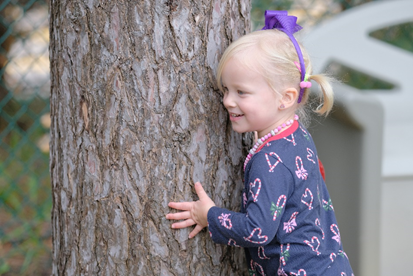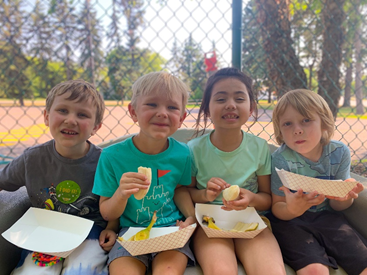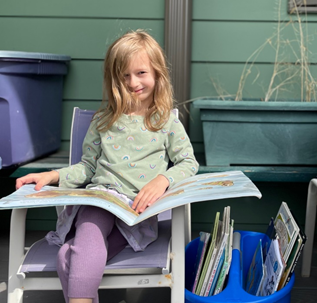Summer, Montessori-Style
Summer is a wonderful time to relax, have fun as a family, and enjoy new experiences. If you are looking to continue your child’s Montessori experience at home during these warmer months, here are some ideas. Enjoy!
Take a Deep-Dive into Personal Interests
Is your child interested in dinosaurs? Ancient Egypt? Horses? Summer can be the perfect time to help them explore these interests further. A few places to start:
● Ask your local librarian for help finding both nonfiction and fiction books that would appeal to your child’s interests.
● Figure out if there are any relevant day trips you could take to get in-person experiences (museums, farms, historical sights, parks, etc.)
● Find ways to bring your child’s interests into the kitchen. You might find yourself recreating various cultural dishes or baking up some panda-shaped cookies.
● Turn family movie night into a learning experience with a documentary.
Connect With Each Other
Find ways to reconnect. During the regular school year, life can get busy. Embrace the slower pace of summer and reevaluate how you and your child can spend meaningful time together. This will change as children get older, as will your common interests.
As with all things Montessori, just remember to follow the child.
If you have an infant, toddler, or preschooler, your together time will include lots of cuddles and caretaking. It is almost easiest at this age because our youngest children rely so heavily on our presence. (Just remember to take a little time for yourself!)
As your child gets older, continues to develop their independence, and socializes increasingly with their peers, there will naturally be changes in how you interact with each other. Spending time outdoors together is a favorite for many families, as is creating regular traditions.
Get Outside! (Of Course)
During the school year, kids get outside every day for recess. Now that they are home more, it is critical to ensure they are still getting this outdoor time. Combine their needs with the gorgeous weather, and you will find endless opportunities.
For the little ones: go to a playground, take a walk in a local park, or just sit out in front of your house. Children will delight in watching a bug crawl by, smelling the scent of flowers, and feeling the dirt on their bare feet.
For older children and teens: the possibilities are endless. Keeping their developmental needs in the forefront of your mind will make them much more likely to be enthusiastic. This could include making time outside a social activity with their friends, giving them choices of activities, and making it a regular part of their daily routine.
Read, Read, Read
Kids may take a break from academics in the summer, but reading should never stop. It is important to find ways to make reading a part of the daily routine, no matter the age of your child. For prereaders, find a time you can sit together each day to read a book together. For older kids, carve out plenty of time for them to read on their own daily. A few tips to keep the reading going:
● Let your child see you reading for enjoyment. They want to model their behavior after you, and this can be powerful.
● Get excited about books. Make sure your child knows they are important to your family.
● Do not push emerging readers too hard. Give them access to books, read to them, but recognize that they need to associate a positive feeling to books.
● Ask for help when it comes to book-resistant tweens. Some kids seem like they do not want to read, when they would rather read about their specific interests or stick to a specific genre. Let them immerse themselves completely in the types of books they love; they are getting something important out of the experience and will evolve to other styles of books eventually.
● Bring books along for the ride. When you go for outings, keep a few in your bag. You never know when a quiet moment of boredom will arise, and you will be prepared.
Explore Your Community
Feeling connected to your community is good for all of us. Start small and see where your efforts take you.
For young children, their community might be just their neighborhoods. Walks will give them a sense of familiar “landmarks” neighbors, and neighborhood workers. Recognizing that gorgeous garden down the street or waving to the mail carrier every afternoon are small things that help children recognize they are part of a bigger group of people who live and work together.
As your children get older, you might expand upon their experience. Explore what makes your town special, whether that means checking out historical landmarks, buildings, or institutions of importance, enjoying annual festivals, or participating in community events. Service experiences are always a good idea. This could mean joining a town clean-up effort or volunteering with a local organization.
Enjoy the time together!




